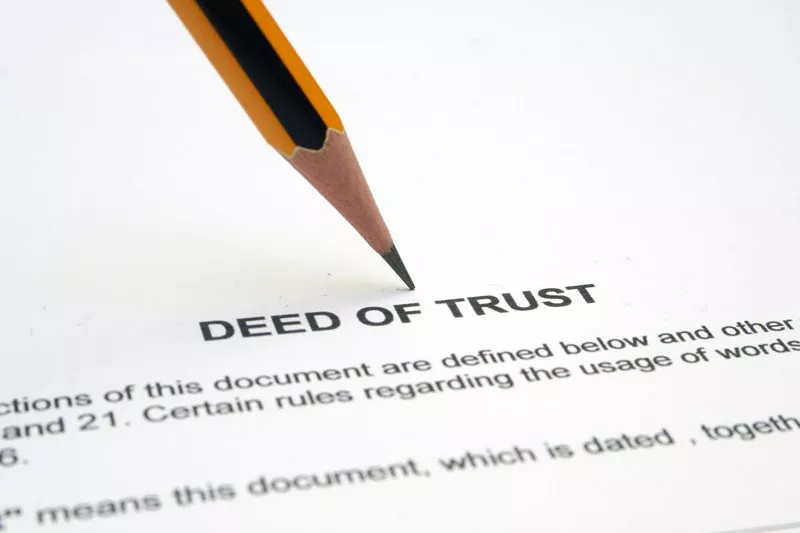Trusts, Asset Protection & Estate Planning
Holland Beckett provides a comprehensive asset protection and estate planning service for clients. Our Succession and Estates team will help you plan for the future and give you the peace of mind you are looking for.

Both businesses and individuals can find their assets threatened by unexpected changes in circumstances. These changes can cause complex legal issues which could be avoided or minimised through proper asset structuring such as the use of trusts or pre-nuptial agreements.
It is also important to consider what happens if you become seriously ill or pass away. If this happens to you and you have not planned properly for the future, decisions about your affairs will be made by someone else – and those decisions may not reflect your wishes.
If you have an estate or Will query, please contact our Succession and Estates team on estates@hobec.co.nz.
Our Experience Includes:
- Wills (including international Wills)
- Living Wills (specifying medical treatments you would/would not like in the event you cannot communicate)
- Family Trusts
- Charitable Trusts
- Advice to trustees
- Resettlement of assets into Trust structures
- Winding up of Trusts
- Independent trustee services
- Forgiveness of debt and gifting programmes
- Powers of Attorney
- Enduring Powers of Attorney
- Relationship Property
- Contracting Out Agreement/Pre-nuptial Agreements
- Relationship Property Agreements/Separation Agreements
- Applying for Property and Personal Care Orders for someone who has lost capacity
- Retirement Villages and Rest Homes
- Residential Care Subsidy Applications
- Maximisation of government subsidies and other benefits
Our Trusts, Asset Protection & Estate Planning Team
Related News & Resources

September is Wills Month.
A Will is perhaps the most important piece of paper you can leave behind to support your loved ones. Why do you need a Will, what happens if you pass without a Will, and how best should you prepare your Will for your circumstances?
Download our Wills Month Information Pack.
September is Wills Month.
Holland Beckett take part by offering a free Simple Will, or a 20% discount on a Complex Will, if you leave a gift to charity in your Will this September.
Speak to the Holland Beckett Succession and Estates team about Wills Month and what charity giving options would best suit you.
Contact the team on estates@hobec.co.nz or call our offices on 07 578 2199.

Why you need a Will now more than ever
In today’s evolving financial and legal landscape, having a valid Will in place has never been more critical for New Zealanders. The absence of a Will can lead to unnecessary delays, stress, and cost for families.
One of the most overlooked reasons to have a Will is KiwiSaver. Many people assume their KiwiSaver balance will automatically pass to their partner or next of kin on death, but that’s not how it works. KiwiSaver funds are held solely in the name of the individual and do not pass by survivorship (think, property held as joint tenants). Instead, they must be dealt with as part of the person’s estate, and if there is no Will, this creates delays and uncertainty in accessing those funds. With the recent Government budget injecting more incentives and support into KiwiSaver, balances are likely to grow significantly over time.
Another relevant factor is the probate threshold. Currently, assets over $15,000 will require a grant from the Court. This threshold is due to increase to $40,000 in the September 2025 to better reflect current asset values. In real terms, the threshold is easily exceeded - especially when you consider KiwiSaver.
Without a Will, for which the Court can grant “probate”, family members must apply for “letters of administration” which can be slower and more complex, particularly when family dynamics are tense.
At the same time, more New Zealanders are choosing to own property as tenants in common rather than joint tenants - especially in blended families or where people wish to protect their children’s inheritance from a new partner. This structure allows each party to leave their share of the property to whomever they choose, provided they have a Will to specify that. In this situation, a Will should complement any Contracting Out Agreement (or “Pre Nup”).
Many family trusts are now being wound up or simplified due to changes in trust law, compliance costs, aging/migrating settlors and international beneficiaries (giving rise to tax implications). As assets come out of a trust and revert to personal ownership, they become part of a person’s estate and must be carefully dealt with by their Will.
Overseas properties, investments and digital assets can be challenging to deal with if someone passes without a Will (or Wills) to reflect what should happen to assets in other countries.
Having a Will is no longer just about passing on the family home - it’s about ensuring some thought is given to the increasing complex assets and arrangements of the modern estate. With the right guidance, a complicated situation can have a clear and manageable solution. The key is to decide what you want to achieve, and get a Will drafted to reflect that.
Holland Beckett’s specialist succession and estates team provide expert advice on succession planning and can help to create a Will that best reflects your individual situation.
This article was first published in the New Zealand Herald and Bay of Plenty Times, July 2025.

Gift vs Loan – What’s the difference and why it matters in Estate Planning
It is common for parents to help children financially - whether it is a deposit for a first home, help with debt, or business support. However, when that money changes hands, it is important to be clear: was it a gift or a loan? This simple distinction can have significant legal and financial consequences, especially when it comes to estate planning.
What is a Gift?
A gift is a transfer of money or property made with no expectation of repayment. In legal terms, once given, the money no longer belongs to the giver.
Key features of a gift:
It is unconditional.
There is no written or implied agreement for repayment.
The recipient is free to use it however they like.
It can affect future Family Protection or Relationship Property claims.
It can affect the ability to qualify for residential care subsidy or other Government support.
Family relationships
Care needs to be taken where you are gifting money to your child and their partner, such as to help them into a property. Should that relationship break down, the partner would not necessarily be required to pay back any portion of the gift, therefore walking away with half of the gifted money.
Dealing with banks
If you are taking out a mortgage or loan with a bank, gifting certificates are often required where a family member is advancing a portion of the purchase price. This is so the bank isn’t in competition with anyone to get their money back should the bank loan end up in default. There are ways to record this on terms acceptable to the bank, while also protecting the advance. The document needs to be worded in such a way that doesn’t impede on the banks rights to be “first in line”.
Estate implications
If you have made significant gifts during your lifetime, this can reduce the assets available in your estate. If you give more to one child than another, it could cause disputes or be challenged under the Family Protection Act 1955 by children who believe they have not been adequately provided for.
What is a Loan?
A loan, by contrast, is money given with the expectation it will be paid back, either on demand or on agreed terms.
Key features of a loan:
It may be interest-free or interest-bearing.
There is usually some record of it (e.g. a loan agreement or promissory note).
It may be repayable on death or earlier.
It can be secured (e.g. against property) or unsecured.
Better protection
A loan provides protection in the scenario where you are advancing money to your child and their partner. If this relationship later breaks down, you can “call up” the loan and have this paid back. You can then re-lend the money to your child once the separation is complete for another purchase, if you choose to. However, as noted above, when banks are involved they will usually not allow a loan with interest or a specified repayment date, as this can affect the banks priority if the loan is defaulted.
Estate implications
A properly documented loan becomes an asset of your estate. Your executors can call the loan in after your death. This is especially useful if you want the amount to be eventually divided fairly among all children but are happy for one child to have the benefit of it in the meantime.
Beware of time limits under the Limitation Act 2010
If a loan is not properly documented, or if there is no clear date or mechanism for repayment (such as being repayable “on demand”), you run the risk that the loan becomes unenforceable over time. Under the Limitation Act, the right to enforce a debt usually expires six years after the cause of action arises. If the loan is repayable on demand, that six-year period may begin as soon as the money is transferred - unless otherwise specified. To protect your estate, it is important that any loan agreement includes clear repayment terms and triggers for demand, to ensure it remains recoverable.
Why the Difference Matters
Failing to document whether financial support was a gift or a loan can lead to:
Disputes between siblings over whether the recipient should get more than others.
Relationship Property claims, especially if a child separates and their partner claims half of what was received.
Unintended tax or trust consequences, if the money was meant to be protected.
Expired claims, if the estate cannot legally recover the loan due to limitation periods.
How to Protect Your Intentions
Document it clearly: Use a deed of gift or a formal loan agreement. This helps your family and your executors understand your intentions.
Include repayment terms: Clearly outline when the loan is due, how it can be demanded, and what triggers repayment - this avoids limitation issues.
Consider your Will: Your gifting or lending decisions can affect what is in your estate - make sure your Will aligns.
Talk to a lawyer: A small amount of advice now can save thousands in legal fees (and family stress) later.
Whether you are helping your children financially now or planning for what happens after you are gone, be clear about your intentions. A well-planned estate not only protects your assets but also your family relationships. If you are unsure whether past financial help was a gift or a loan - or you want to formalise it - talk to the Holland Beckett Succession and Estates team.
This article was first published for First Mortgage Trust, July 2025 newsletter.

Can I Disinherit My Children?
Many people assume that writing a Will gives them absolute control over who receives their property when they die. While that’s largely true in principle, New Zealand law imposes limits on testamentary freedom - particularly when it comes to children and other close family members.
If you are thinking about leaving a child out of your Will, it is important to understand what the law allows, what risks you may be taking and how you can best structure your estate planning to achieve what you want.
What does it mean to disinherit a child?
Disinheriting a child means deliberately choosing to exclude them from your Will - leaving them nothing, or only a token gift, in favour of other beneficiaries such as a spouse, a charity, or another child. This might be because of estrangement, past conflicts, financial independence, or other personal reasons.
Can I disinherit my children?
Yes, you are allowed to make a Will that leaves your assets to whoever you choose. However, that decision can be challenged after your death if the law finds that you failed to meet your obligations to your children.
In New Zealand, the key legislation that allows Wills to be challenged is the Family Protection Act 1955 (FPA).
What is the Family Protection Act 1955?
The FPA gives certain family members - including children of any age - the right to challenge a Will if they believe the deceased failed to make adequate provision for their proper maintenance and support.
This does not mean children are automatically entitled to a share of your estate. However, it does mean that if you exclude them, a Court will consider whether that exclusion was appropriate, given the circumstances.
Who can claim under the FPA?
Spouses and civil union partners
De facto partners
Children (including adult children)
Grandchildren (if their parent is deceased)
Stepchildren (in some cases)
Parents (only if the deceased left no spouse or children)
What will the Court consider?
When deciding whether a parent has breached their moral duty to a child, the Court looks at a range of factors:
The size of the estate
The child’s financial needs and circumstances
The relationship between the parent and the child
Any contributions the child made to the estate
The needs and claims of other beneficiaries
Whether the child was supported or gifted during the parent’s lifetime
Importantly, being estranged or financially independent does not automatically disqualify a child from succeeding in a claim.
If the Court can just step in, then does disinheritance ever succeed?
Yes - there are cases where disinheritance has been upheld by the Courts, particularly where:
The child is financially well-off, and the estate is modest
The relationship was seriously broken, and the parent had good reasons for exclusion
The parent has clear documentation explaining the decision
Other beneficiaries (e.g. a surviving partner or dependent child) have stronger moral claims
But there are also many cases where Courts have re-allocated estates, awarding disinherited children a portion of the assets because the parent’s Will failed to meet their legal duties.
What about Trusts or gifting assets before death?
Some people try to avoid FPA claims by transferring assets into Trusts or giving them away before death. These strategies can work - but they come with risks:
If challenged, they may trigger litigation under other laws (e.g. the Property (Relationships) Act 1976 or Law Reform (Testamentary Promises) Act 1949)
Trusts must be carefully structured to avoid sham arrangements
It is essential to get advice before taking these steps, as poorly executed strategies can lead to costly and protracted disputes.
Get advice
If you are considering disinheriting a child, you are best to get advice from a lawyer specialist in this area. Best practice in this situation would include the following steps:
Clearly record your reasons in a written memorandum to be stored with your Will
Consider leaving a modest legacy to the child to reduce the likelihood of a claim
Avoid emotional or vague explanations - focus on objective factors
Ensure your Will is up-to-date and properly witnessed

Succession planning for your digital assets
As we have moved into a more digital age, consideration should be made as to what happens to your digital assets when you die.
Increasingly, people are amassing both personal and business digital assets that have value – let’s not forget about James Howells who has spent a considerable fortune trying to dig through a Newport landfill site to find his private access key for his Bitcoin, which is now worth a whopping $800m.
So, what are your digital assets, what happens to them when you die, and how can you make sure they are not lost?
Your digital assets, which may have more value than others, include:
Digital assets on computing devices;
Financial accounts, including online gaming accounts, Bitcoin or other cryptocurrency wallets, and FOREX trading accounts;
Digital books, music or video streaming;
Cloud storage accounts;
Payment services;
Social media accounts used for marketing or advertising, loyalty programmes and any other;
Computer programmes directly installed onto a computer or provide the software as a service;
Intellectual property;
The infrastructure of an online business – websites and blogs;
Customer management services that manage mailing or newsletter descriptions.
You may also have assets of sentimental or other value such as photos, family trees (ancestry.com), or emails.
The best thing you can do is consider what you wish to happen to these digital assets and make provisions in your Will as to who has the right to access your digital assets, either stored on your computer, phone or that exist online, to amend or remove any profiles and provide any other notifications as required. Provision should also be made in your Will as to where all of the details of relevant passwords and logins are contained. It is therefore important to have a “password safe or manager” that stores and encrypts a list of passwords and user names for all online assets with the master password either provided in a sealed envelope with your Will or some other way with your Executors.
In addition, many online providers have their own policies as to what happens when you die and the rights to those digital assets will vary from provider to provider – for example, Facebook allows people to turn a deceased profile into a memorial page and Google allows you to plan ahead and appoint inactive account managers who are notified if the account is inactive for a certain period of time or you can choose to have the account deleted entirely.
Speak to your legal advisor about a specific clause in your Will relating to digital assets and what you would like to achieve. This clause should cover whom you wish to leave your digital assets to, what that includes and any appropriate login data.

Life Interest Wills
Mirror Wills
In a typical, nuclear family structure, it is common for a couple to leave their entire estate to each other, and for their Wills to provide that after they have both died the family estate will go to their children. This is commonly known as a mirror Will.
In the modern age, however, blended family structures are becoming increasingly common. If you have children from a previous relationship, you may find yourself stuck between wanting to ensure your children are provided for, and also ensuring your partner is looked after when you die.
If a couple is comfortable relying on their new partner to provide for their respective children in the surviving spouse or partner’s Will, a mirror Will could still be used. However, these Wills do not create a legally binding agreement between couples. Either spouse or partner is therefore free to change their Will at any time during their lifetime. These Wills frequently result in claims against the estate made by the deceased spouse or partner’s children from a previous relationship.
Mutual Wills
A mutual Will is another available option. A mutual Will is a mirror Will signed alongside an agreement between the respective Will-makers that they will not amend the terms of the Will in a way that will worsen the position for their stepchildren. While mutual Wills are effective for protecting the interests of both partners’ children, they are restrictive on the surviving partner and can be difficult to enforce.
To help avoid the risk of claims against your estate, and to offer peace of mind, a life interest Will may provide the answer.
Life Interest Wills
In your Will you can grant to somebody a life interest in an asset, giving that person the right to use that asset for the rest of their life. On their death, the asset will pass to the people named in your Will.
Life interests may be granted in:
Your entire estate;
Specific assets e.g. family heirlooms;
Real property e.g. the family home; or
A right to receive income from estate property e.g. bank account, shares or other investments.
A life interest can be a good way to provide for your partner, while still ensuring the asset will eventually be given to the named beneficiaries, usually your children.
A common example is where a person provides a life interest in the family home to a spouse or partner, and once their spouse or partner dies the family home will pass to the Will-maker’s children. Often the couple will own the family home in equal shares. This allows each of them to deal with their 1/2 share in their Will in the way they choose.
A life interest Will provides a basic level of asset protection. Any assets subject to a life interest will be held by the trustees appointed in the Will and do not legally belong to the person with the benefit of the life interest (such as the surviving spouse or partner). It can therefore provide peace of mind to the Will-maker that all of their loved ones will be looked after.
On the other hand, a life interest can be restrictive for the surviving spouse or partner. The surviving spouse or partner effectively loses control over assets that they may have considered to be theirs if they were used by the couple to benefit both of them. Any dealings with the asset will require the trustees of the Will to consent, and will be subject to the terms of the life interest in the Will. Issues can also arise if the circumstances of the surviving partner change, for example, if they need to go into care or move into a retirement village. A life interest Will can also mean the children may not see their inheritance for many years.
Holland Beckett’s succession and estates team is here to discuss your particular circumstances to determine if a life interest Will is right for you.

Contracting Out Agreements – A valuable estate planning tool
Contracting Out Agreements (often referred to as prenuptial agreements) are often viewed quite negatively. They can be seen as having one foot out of the door in a relationship. However, Contracting Out Agreements can be powerful tools to help you and your partner cement your intentions for how your property is dealt with when you die thus preventing a future argument between families. A Contracting Out Agreement is not just for separating couples - it can assist to ensure your wishes are upheld upon death.
When you pass away with a Will, your partner has two options; they can chose to follow the terms of your Will pursuant to the Administration Act 1969 (“Administration Act”) or they can make an election under the Property (Relationships) Act 1976 (“PRA”) to have their share of relationship property determined.
Why does this matter?
This matters because modern relationships are complex. For a multitude of reasons you may not intend to leave your partner 50% of your property upon death. For many of our clients in second relationships, they want to provide for their partner, but they want the majority of their estate to go to their children from their first relationship.
The option for partners to elect whether or not to follow your Will, can take control of your property out of your hands leaving what you may see as an unfairness to your children. This is why a Contracting Out Agreement can be such a powerful tool.
With a Contracting Out Agreement in place, even if your partner elects a determination for a division of your estate in line with the PRA, they are bound by the terms of the Contracting Out Agreement which determines which assets are in the pool for division and which are out.
What does a Contracting Out Agreement do?
Under the PRA there is a presumption that upon death or separation your partner is entitled to an equal share of the relationship property. This legislation will apply to you unless you elect to “opt out” by entering into a Contracting Out agreement whereby you and your partner reach your own agreement on what property will be determined separate property and what will be relationship property.
Without a Contracting Out agreement relationship property includes:
The family home;
The household chattels;
Vehicles used for family purposes;
That share of Kiwisaver or other superannuation policies accrued during the relationship;
Your income; and
Anything else acquired during the relationship or used for your shared life together.
A Contracting Out Agreement is capable in most circumstances of mirroring the terms of your Will. It has the capacity to be very specific. Not only can you dictate which property belongs to which partner and their estate, you can also make special provisions for your partner upon separation or death.
An example of this is in circumstances where you want the family home to pass to your children or some other third party upon death, you can still provide your partner with a qualified life interest in the home.
You may decide, for example, that you wish for your partner to continue living in the home for a specific period of time (or the rest of their life) but as soon as they move out, start a new relationship, or die, the home will pass to your beneficiaries in accordance with your Will. A Contracting Out Agreement is a flexible tool capable of reflecting your Will.
How do we make a Contracting Out Agreement?
A Contracting Out Agreement is a binding legal document. Like most legal documents, there are specific procedures that must be followed to make sure your document is enforceable.
For your Contracting Out Agreement to be valid and legally enforceable you will need to:
Record the agreements reached in writing;
Receive independent legal advice; and
Have your signing witnessed by a lawyer.
You and your partner will need different lawyers. Once you have engaged a lawyer, you can share your intentions for how you want your relationship property to be divided and any specifications for what you want to happen upon death. Lawyers can assist you and your partner to make sure you are both adequately provided for.
If you have concerns about how your estate will be distributed when you die, we recommend that you discuss matters with your partner and get some advice.
Furthermore if you already have a Will or a Contracting Out Agreement, we recommend that you review the terms of these documents regularly to ensure they still reflect your intentions and your circumstances.Talk to the Holland Beckett Family or Succession and Estates team for more information.
This article was first published for First Mortgage Trust newsletter, April 2025.

Bequests and Gifts to Charity in Your Will
Have you considered what will happen to your loved ones and the causes you care about after you’re gone? Did you know, you can direct gifts and distributions to your family whilst still making provision for charities you care about in your Will? In this way, your Will is much more than just a legal document, it is a way to protect and provide for your loved ones, and to leave a lasting impact.
Why having a Will matters
Having a Will is essential, as it ensures your wishes are carried out after you pass away. Your Will provides instructions on how your property, assets, and belongings should be distributed, making it easier for your loved ones and legal representatives to manage your estate.
If you pass away without a Will (known as \"dying intestate\") and have assets worth more than $15,000, your estate will be distributed according to the Administration Act 1969. This means your assets may not be distributed how you intended and the process can be more costly and time-consuming for your loved ones. Creating a Will helps minimise stress, legal complications, and unnecessary expenses for your loved ones.
Key Components of a Will
The following should be covered in your Will:
At least one executor, preferably two, who live in New Zealand. Executors are responsible for ensuring your wishes are carried out and handle the legal and financial matters, like ensuring your debts are paid and assets are distributed according to your instructions.
Instructions for paying debts and liabilities.
Adequate provisions for your partner and children.
Clear instructions on who will inherit your property and possessions.
Guardianship arrangements for any minor children (if applicable).
Funeral wishes (not legally binding but should be considered by the executors).
Bequests or gifts to charity.
Leaving a Gift to Charity
If you have regularly supported a cause during your lifetime then you may want to continue that generosity by leaving a gift to charity in your Will. Regardless of the amount, your gift can make a lasting impact. However, there are a few important considerations:
Types of Charitable Bequests
Residuary Bequest - A percentage of your remaining estate after other gifts and expenses have been completed.
Pecuniary Bequest - A fixed sum of money or cash gift.
Choosing Between a Fixed Amount or a Percentage of Your Estate
Percentage-based bequest: This is the recommended approach for charitable giving, as it ensures the gift remains proportional as the value of your estate might change over time, maintaining fairness among beneficiaries and prevents unintended financial imbalances.
Fixed amount bequest: This is a set amount of money you wish to donate. However, changes in your estate\'s value over time could result in the amount being larger or smaller than originally intended. If choosing this option, consider setting the funds aside in a separate bank account to prevent potential disputes or the money passing by survivorship if you currently have joint accounts with another person.
Balancing charitable giving with family needs
While charitable giving is admirable, it is crucial to ensure your estate can still provide for your loved ones. Leaving an excessive gift could lead to legal challenges under the Family Protection Act 1955, which allows family members to contest a Will if they believe they have not been adequately provided for. Additionally, it is important to assess whether the amount you plan to donate will be financially feasible as an unrealistic or excessive gift may fail and could create legal complications for your loved ones.
Seeking legal advice can help you balance your wishes with your family\'s financial security.
Ensuring your gift reaches the right charity
To prevent confusion and ensure your gift goes to the right place:
Confirm the charity’s full legal name and registration number through the Charities Register. This helps verify the charity’s legitimacy and ensures your gift is directed correctly.
Consider including a discretionary substitution clause in your Will, which allows your executor or trustee to redirect your gift to a similar charity if your charity no longer exists, has changed its name or has merged with another charity. This ensures your gift remains aligned with your intentions.
Keeping your Will updated
Your circumstances may change over time, potentially affecting the validity of your Will. You will need to review and update your Will from time to time, especially around key life events such as:
Marriage, civil union, or separation/divorce.
Changes in your financial circumstances.
The birth or death of family members.
Buying or selling significant assets, such as property which might be listed in your Will.
Seeking professional advice
To ensure the validity of your Will and that your charitable bequest is properly structured, consult with a legal professional. A well-drafted Will reduces the risk of disputes and ensures your bequest benefits both your loved ones and the causes you support.

Hilary Anderson joins Holland Beckett as Special Counsel
Holland Beckett is pleased to announce that Hilary Anderson has joined the firm as Special Counsel.
Hilary is a specialist property and commercial lawyer and joins our property and commercial law practice working closely with Dean Thompson and his team.
“The appointment comes at a time of significant momentum for the firm as we grow our commercial and development practices,” says Dean Thompson, Partner at Holland Beckett. “Hilary has always impressed us in past dealings with her common sense and commercial approach. She will be a great addition to the team.”
Hilary enjoys a wide variety of work for private clients, property developers and commercial clients, with expertise in residential and commercial property transactions and finance, property development, conveyancing, subdivisions, commercial leasing, franchising and contract matters. She also has a special interest in trusts, asset planning and protection with significant experience in complex or large estates. Named as one of New Zealand Lawyer’s Rising Stars in 2022, Hilary is a driven but straightforward and approachable lawyer.
Born in Ōhope, Hilary has strong connections to Whakatāne and the Eastern Bay of Plenty. She has called Tauranga home for more than a decade and has strong relationships and an incredible reputation in the community.
Holland Beckett is delighted to have identified a talent and to have her join the team at a time of growth. The Bay of Plenty based firm has almost outgrown their current Tauranga premises and will move to new offices in the CBD next year, marking the next phase in the firm\'s success. Dean Thompson adds, “we have always got room for good people.”
Please reach out to Hilary for any property or commercial enquiries hilary.anderson@hobec.co.nz or 07 571 3836.

Incentives for a Trust in light of recent regulatory reforms
Safeguarding your Legacy
Trust structures have been a cornerstone of asset protection for centuries, particularly for those wishing to safeguard valuable assets like investment portfolios. However, the legal and tax landscape is constantly in flux. To ensure these structures remain effective, individuals seeking asset protection should follow four key steps on their informed decision-making journey:
First, it is crucial to grasp the basic concept of a Trust after the new Trusts Act 2019 which came into force on the 30th January 2021. This involves knowing how a Trust works and the roles of parties such as the settlors, trustees, and beneficiaries.
Establishing a Trust involves thoughtful steps, including choosing an independent trustee who is not a beneficiary. The independent trustee’s role is to act in the beneficiaries’ best interests, avoiding or managing any conflicts.
Understanding the purpose of the Trust is essential. This involves considering any specific needs or long-term goals for asset protection and aligning the Trust\'s structure and provisions to the desired outcomes.
Finally, ongoing administration by the chosen trustees is vital to safeguard the best interests of the beneficiaries over time. Regular reviews ensure that the Trust complies with evolving regulations and effectively fulfils its intended purpose.
Trustees
Being a trustee comes with significant responsibility, given its fiduciary position. Understanding the Trust Deed thoroughly and adhering strictly to its terms is crucial. Trustees must exercise care, diligence, and act in the best interests of beneficiaries when making investment decisions. Delegating duties is not sufficient; active participation is essential. Trustees should maintain accurate records and disclose information appropriately to beneficiaries. Additionally, addressing health and safety risks related to the Trust assets is part of their duty. Unanimous decision-making among trustees is mandatory unless the Trust Deed specifies otherwise.
Tax
Effective 1st April 2024, the tax rate for Trust income has increased from 33% to 39%, aligning with New Zealand’s top personal income tax rate. This change aims to create a more balanced system. However, there are exceptions:
Trusts earning less than $10,000 annually will maintain the old 33% tax rate.
Estates will benefit from a lower 33% tax rate in the year of death and the subsequent three years before transitioning to the new 39% rate.
Trusts specifically supporting disabled beneficiaries, energy consumers, and legacy retirement funds will continue to be taxed at the lower 33% rate.
With the recent increase in Trust tax rates, trustees have shown concerns about their ordinary actions being misconstrued as tax avoidance. To address this, Inland Revenue has issued guidance on permissible actions that, when devoid of artificial or planned elements, are unlikely to be construed as tax avoidance. These actions include:
Adjusting a Trust-owned company’s dividend pay-out policy (for example, distributing retained earnings before the new rate or reducing dividends afterward).
Directly distributing income to beneficiaries in lower tax brackets.
Incorporating companies within the Trust for asset transfers at the 28% company tax rate.
Investing in Portfolio Investment Entities (PIEs) with a 28% tax rate as a tax-efficient alternative to investments subject to the full 39% trustee tax rate.
Winding up the Trust as a valid option in all these potential scenarios.
Seeking ongoing legal, financial and tax advice in this respect is crucial.
AML
Effective 1st June 2024, New Zealand\'s Anti-Money Laundering and Countering Financing of Terrorism (AML/CFT) regulations introduce stricter Trust verification procedures. The key changes affect customer due diligence (CDD) requirements. Reporting entities must now obtain and verify specific details related to trusts:
The Trust\'s legal structure and proof of existence (i.e. The Trust Deed).
Ownership and control structure (identifying who ultimately controls the Trust).
Governing powers that bind and regulate the Trust.
Identity of the settlor(s) (person who established the Trust) and protector(s) (if applicable).
It is important to note that, for AML/CFT purposes, the Trust itself is considered the \"customer\", not the individual trustees. Despite this, a Trust is legally classified as an “arrangement,” not a “person.” Consequently, CDD requirements also apply to the individuals who ultimately control the Trust—the beneficial owners. These individuals, including trustees, hold significant direct or indirect ownership or control over the Trust. While a settlor creates a Trust, they qualify as a beneficial owner only if they maintain substantial control, such as the power to appoint trustees amongst others.
Key Conclusion
Trust structures serve as powerful tools for managing wealth across generations. Generally, they offer significant advantages, including asset protection from creditors and streamlined wealth transfer to future generations. However, it is essential to weigh the costs, complexities and benefits. A thorough analysis of your specific circumstances will help determine whether a Trust remains the best approach, especially considering the changing tax landscape and increased administrative burden.
Our team at Holland Beckett specialises in estate planning and trust matters and is ready to assist you.

Why do I need an Independent Trustee?
Many people question, what is an independent trustee, what do they do and what value do they bring to my trust?
What is an independent trustee?
An independent trustee is a person or entity who act as a trustee of a Trust where that person or entity has no interest in the assets of the Trust - meaning they are not a beneficiary of the Trust and are not entitled to share in the assets of the Trust.
An independent trustee is often a ‘professional trustee’ such as a lawyer or an accountant. However, a trustee does not have to be a ‘professional’ to be independent, they just have to be a person who is not a beneficiary of the Trust.
Why should you have an independent trustee?
Having an independent trustee is not a legal requirement under the Trust Act 2019, however is recommended for the following reasons:
More credibility for the Trust and is less likely to be susceptible to any successful legal challenge in the future;
Adds an element of transparency to the Trust, so if any third party is looking at the Trust they can see that there is an independent person who is moderating the decisions of the trustees and ensuring the Trust is not regarded as a ‘Sham Trust’ and therefore losing any protection the Trust was intended to provide;
Assists in the better management and administration of the Trust. As outlined above, often the independent trustee is a solicitor or accountant who is familiar with trust legislation and can ensure that the Trust is complying with the Trusts Act 2019. They also may have an ongoing relationship with the family which supports an understanding of the underlying reasons for the Trust; and
Some trust deeds require the Trust to have at least one independent trustee.
Having a Trust to protect assets will only work if the trustees carry out their functions correctly, which includes administering the Trust properly. This is where an independent trustee can assist the other trustees by ensuring the Trust and trustees meet their legal duties and responsibilities.
The implementation of the Trusts Act 2019 has increased the scrutiny on Trusts, trustees’ duties and increased potential liability. These changes require independent trustee(s) and independent trustee companies to be more active in the administration of and record keeping for your Trust. As a result, there are a number of independent trustees who are either resigning, declining to take on new Trusts, or are charging an annual fee on the basis of the independent trustee services.
Now is as good a time as any to consider whether an independent trustee is required for your Trust, and to review your trust deed and individual situation to make sure your Trust is fit for purpose and complying with current requirements under the Trusts Act 2019.

Succession Planning – Case Study: John Johnson
John Johnson is a 68 year old widower. He has a complying Family Trust that owns the majority of his assets (only his KiwiSaver is in his personal name). The Trust was established several years ago when John operated a business, for creditor protection. On his death, John intends for all his personal assets and the assets settled on the Trust to be divided equally between his daughters, Sandy (who lives in Sydney) and Wendy (who lives in Wellington).
John’s lawyer says it is generally not advisable for overseas family members to:
be the executors of your Will; or
be appointed as your attorney for either property or your personal care and welfare matters.
Having received advice, John has nominated Wendy alongside his solicitor, as his executors and trustees. For his Enduring Power of Attorney documents, John appoints Wendy and a family friend who are based in New Zealand.
John is also advised about the Trust Act 2019, which has placed increased obligations on trustees by introducing, amongst other things, the presumption of making basic Trust information available to all beneficiaries (whether they are likely to benefit or not) and the duty to invest Trust assets prudently.
John’s lawyer suggests that now would be a good time to review his Trust to determine whether:
the Trust is still needed;
whether trustees are meeting their obligations; and
whether the Trust Deed can or should be varied to reflect the changes introduced in the Trusts Act 2019.
The advice to John is that if you don’t have a Trust for a really good reason, like asset and creditor protection, a Trust may just be another unnecessary and costly complication in life. As John no longer operates his business, he does not need the Trust for creditor protection.
However, John’s lawyer indicates that there may be benefits in keeping the Trust for residential care. In John’s case, he is likely to obtain a residential care benefit by keeping the Trust, because his personal assets fall under the threshold of $273,628, his only income is superannuation, and the Trust assets were gifted some time ago in line with MSD’s gifting rules for the residential care subsidy.
The lawyer advises that there are other estate planning options to maximise residential care benefits for couples without a Family Trust. For example, if a couple’s main asset is their home then they could consider life interest Wills so that if the survivor of them needs care, half of the equity in the property is protected. Where a single person owns a property in their personal name there are less options.
Tax is also a consideration. John is advised that in many overseas jurisdictions, distributions from Trusts are taxed more harshly than distributions from a person or from their estate. John is cautioned that if Sandy from Sydney is to receive a distribution from the Trust (rather than his estate), there may be tax consequences. He is advised to speak to his accountant about this. Ultimately, John would have to weigh up the potential benefit of keeping the Trust in the case that he went into residential care, against the potential tax consequences for Sandy.
John suddenly passes away. Wendy from Wellington receives a half share of the Trust assets and estate assets without any deduction (as generally in New Zealand there are no tax consequences for receiving a Trust capital distribution). However, in accordance with Australian tax rules Sandy from Sydney’s half share is taxed as income and she therefore receives a significantly smaller share than her sister.
Succession planning – Is it time to review your affairs?
As your circumstances change, your Will and wider estate planning (such as Family Trusts and Enduring Powers of Attorney) should be reviewed.
It may be that what once was suitable for you and your family, is no longer practical. Here are some important events that should trigger a review:
change in relationship status (for example, a marriage will automatically revoke your Will but a separation will not);
change in financial situation;
change in health (yours or your families);
sale or purchase of a property;
births/deaths;
family members moving overseas; and
law changes – such as the Trusts Act 2019.
If it has been a while since you last reviewed your estate planning, or if you have had a change in circumstance, we encourage you to speak to a professional about reviewing your wishes. In particular, if you have overseas family members, chat to your lawyers about your estate planning to ensure unnecessary cost and complications are avoided.

The difference between Enduring Powers of Attorney and PPPR Act orders
It is important to have Enduring Powers of Attorney (“EPAs”) in place so that if an unexpected medical event happens the right people can look after you. If you lose your mental capacity and do not have EPAs in place, it can be a costly, time-consuming and stressful process for your loved ones to legally have the right to look after you.
The Protection of Personal and Property Rights Act 1988 (“PPPR Act”) provides what happens when a person loses their capacity to manage their personal and property affairs - both when they have EPAs in place and when they don’t.
Enduring Powers of Attorney
EPAs are legal documents that set out who can take care of your personal or property matters if you are unable to (for example, if you have a stroke, are in a coma or have a cognitive disorder). The person you appoint to look after you is called your “attorney”. There are two kinds of EPA; property and personal care and welfare.
To be valid, the Enduring Power of Attorney must be advised on by a lawyer or registered legal executive while you have medical capacity.
Property
The Property EPA gives your attorney power to make decisions in relation to your money and property, such as the sale of a home or payment of your bills.
You can choose whether your property attorney can act immediately (while you have capacity) or only if you lose capacity. The Property EPA (or PPPR order – more below), can appoint one or more attorneys or a trustee corporation. You can also require your attorneys consult with or provide information to certain people.
Personal care and welfare
The Personal Care and Welfare EPA gives your attorney the power to make decisions relating to your health and welfare, such as choosing a rest home, your level of care or medical treatment.
The Personal Care and Welfare EPA can only come into effect if a doctor certifies you have lost capacity and are unable to make your own decisions. The Personal Care and Welfare EPA (or PPPR order) can only appoint one individual at a time to make decisions on your behalf. However, you can appoint successor attorneys and/or require that the first attorney consult with other people when making a decision.
Why should I enact EPA?
Arranging for someone to be able to make decisions on your behalf by drafting EPAs is a cheaper and more simple process where you are in complete control over who is appointed and what activities the appointed person can complete on your behalf, such as making gifts to family members or charity.
If you lose capacity before you have EPA in place, it is likely that someone will need to be appointed as your property manager and welfare guardian. This is so that they can enter contracts on your behalf, such as for you to be cared for in a rest home or to sell your property to help meet your care expenses and make decisions about your medical care when you are not in a position to do so yourself. Rest homes will not accept you into care if no EPAs or PPPR Act orders are in place.
PPPR Act orders
If EPA are not in place when someone loses capacity, an application must be made to the Family Court to appoint someone to make decisions on your behalf.
These documents can also be organised through a lawyer, but this process takes place once you have lost capacity. You therefore have less control over who is appointed. Whilst every effort is made to appoint a suitable person, it may not be exactly who you would have intended to appoint given it is not a decision in your control any longer.
PPPR Act orders process
The process for applying to be a property manager or welfare guardian includes a medical assessment being conducted, the drafting of applications, affidavits and consent documents, seeking consent from interested parties, filing all documents in court, service of documents on interested parties, a lawyer for subject person being appointed and assessing the subject person, and court approval of the person to be appointed. If the appointed person is disputed, there may also need to be a court hearing.
Further, once someone has been appointed to be your property manager and welfare guardian, that person must file a statement of assets and liabilities with the Court each year, and the orders need to be reviewed by the court – initially every three years, but the court may then decide that every five years is acceptable. A lawyer can assist the appointed person with this process if required, however this is likely to be at a cost to you personally. A record of income and outgoings must be kept, with any money spent for the benefit of the protected person only – not the appointed person. Public Trust conducts reviews of this.
PPPR Act orders cease on death, bankruptcy and if the protected person regains capacity – although in most cases this is not likely to occur if the incapacity is due to dementia or permanent disability.
At a time when you have recently lost capacity and your family needs to ensure that you are cared for appropriately, it is far simpler if you have signed EPA which can then come into effect immediately. If you have not entered into EPA then your family can be put in the position of having to go through the Family Court process to obtain welfare guardian and property manager orders as described above. This process takes time and effort which both increase cost. This can also mean there is a hold up in important decisions being able to be made, as it generally takes several months to work through the Court process before orders for appointment as welfare guardian/property manager take effect. It is significantly quicker and less expensive to enter into EPAs when you have capacity, than for your family members to have to seek PPPR orders once capacity has been lost.
Just like Wills, EPAs are important documents to draft whilst you have capacity. Having documents like these in place will save your family time, cost and stress if you lose capacity and they need to get the Family Court involved to look after your personal care and welfare, and property matters. It will ensure that the people you trust and want to take care of these roles are in position to act immediately should they need to.
If you have any queries, would like to prepare EPAs or need to apply for PPPR Act orders, please reach out to us at Holland Beckett.

Incapacitated Trustee
The Trustee Act 1956 reigned for over 60 years before the Trusts Act 2019 (“the Act”) came into force. The Act aims to simplify Trust-related issues by providing mandatory and default administrative trustee duties. One scenario under the spotlight is the process of removing an incapacitated trustee. Many Trusts that were established in the ‘Trust boom’ around 20 years ago may now be faced with a trustee who is losing capacity. This can be a tricky situation when trustees are trying to deal with Trust assets, especially in a family context. Fortunately, a Court order is no longer needed to remove a trustee.
Trustees can now exercise a compulsory removal of a trustee if they lose capacity (s104 of the Act). This can apply regardless of what your Trust Deed specifies, or fails to specify, in respect of removing an incapacitated trustee. It is then the question of who has the power to remove that trustee which is a case of reviewing the Trust Deed together with the Act. Removal of an incapacitated trustee is a compulsory ground of removal available to the Appointer and if the trustee has lost the capacity to perform the functions of a trustee then it would make sense to remove them.
Review your Trust Deed first
Your Trust Deed may specifically nominate someone with the power to remove trustees. That person may remove a trustee in accordance with their Trust powers or by using s104 of the Act. The Act’s processes may be more suited in some circumstances.
If the Trust Deed is silent on the removal of an incapacitated trustee then follow the Act
The Act’s process is used to account for the situation that the Trust Deed has not anticipated. In reality this is quite common and a good incentive to review or amend your Trust Deed.
The Act states if the nominated person in the Trust Deed is unwilling or unable to remove the incapacitated trustee then the remaining trustees can do so. If there are no remaining trustees or they are unwilling to act, then further individuals may be granted the power to remove. They can include:
a property manager appointed under the Protection of Personal and Property Rights Act 1988 to act as manager of the trustee’s property, or;
a person holding an enduring power of attorney over the property of the incapacitated trustee, or
a liquidator of a corporate trustee that is in liquidation.
A medical certificate confirming that the trustee of concern no longer has the capacity to carry out the role of a trustee will form the basis of the documentation required to give effect to the removal. Holland Beckett can guide you through this process.

Leaving on a Jet Plane
With our borders opening up again, the lure of hopping on a flight that lasts more than 2 hours is strong. Regardless if you are packing your bags for two weeks or two years, there are several things you should consider before you get to that boarding gate.
This list of considerations could become extensive pretty quickly, so we have limited our comments strictly to a few key matters to ensure your legal ‘house is in order’ and we leave you to decide whether to exchange your money to Pounds Stirling now or on arrival, and how many pairs of shoes are too many to pack.
Do I need a Will?
The short answer is yes. A Will is an important document, regardless of your age and stage. Every adult should consider having a Will. It does not have to be a complex or time-consuming process. At Holland Beckett Law, we understand that your focus might be on different things, such as whether to go to Rome or Venice (or both), so we can prepare a Will for you that is fit for purpose and meets your present needs. [click here for more information]
Should I have Enduring Powers of Attorney in place?
The common misconception is that Enduring Powers of Attorney are reserved for ‘old people’. This is incorrect. In the instance of the proverbial “hit by a bus” (or falling off a scooter may be closer to home), if you have an accident or injury that renders you unable to make your own decisions then these documents assist your health professionals and family know whom to speak to and manage your affairs. But take accident or injury out of it, what happens if you are trekking Everest (there’s no wifi up there…) and a critical document needs to be signed or a funds transfer made – with these documents in place you can leave your affairs in the hands of the people you trust, and carry on with getting that perfect Insta shot at the summit. [click here for more information]
Who can administer my Trust in my absence?
Trusts are a separate consideration, and require a (similar but) separate document to enable someone to act for you in your capacity as a trustee in respect of the assets of the Trust whilst you are overseas (rather than in your personal capacity for your personal property). If you have a Trust, your Will should also include provisions to deal with the Trust should the worst occur. At Holland Beckett Law, we can provide you with guidance on how best to have these matters structured during any absences from NZ. [click here for more information]
Further, Trusts are governed by the Trusts Act 2019 (which came into force on 30 January 2021) which, amongst other things, reformed the duties and obligations on trustees particularly regarding disclosure obligations to beneficiaries. As part of the above structuring process, we can advise you on how the Trusts Act 2019 will impact you.
Here at Holland Beckett Law, we understand that the ‘Big OE’ is a rite of passage for lots of kiwis, and it is a very exciting time – but even the best laid plans go awry, so preparation is key. We would be happy to discuss with you how you can best prepare yourself and your affairs to ensure smooth sailing….hopefully around the Greek isles.

Update on trust law – can a trustee consider settlor wishes or other trust benefits?
Trustees and beneficiaries of trusts should be aware of a recent court decision, which clarifies two factors that trustees can take into account when deciding whether to distribute trust assets.
In December 2021, the Court of Appeal’s decision in Kain v Public Trust [2021] NZCA 685 has given trustees some guidance on whether two types of factors can or should be considered by trustees.
These are:
A settlor’s wishes after the trust was established; and
If a beneficiary has received (or can expect to receive) a benefit from a separate but related trust.
Settlor’s later wishes
When establishing a trust, a settlor expresses their intention (or wish) for how the trust’s property is to be used. Later on, a settlor may convey further or different wishes for the way in which they want the trust property to be used.
The Court of Appeal held that:
A trustee is entitled to take into account wishes and subsequent wishes if they are consistent with the terms and purpose of the trust. To do this, a trustee can read and understand these wishes; and
If the more recent wishes are inconsistent with the settlor’s original wishes, a trustee can consider the more recent wishes, however it is a matter for the trustee’s discretion to actually give effect to those recent wishes (in effect overriding the original wishes).
An example would be, as in the Kain case, if there is a statement by the settlor wanting equality between beneficiaries that is not contained in the trust deed. Depending on the circumstances, this wish for equal treatment may be able to be taken into account by a trustee, but those wishes do not have to be followed.
Interrelated Trusts
The Court of Appeal confirmed the general principal that a trustee must take into account all relevant considerations, and not take into account any irrelevant ones. The Court then held that where there are multiple trusts that are related (ie. are connected to one family group), it can be relevant what a beneficiary has received (or might be expected to receive) from a related trust. But it is not a requirement to do so.
For example:
There are two trusts relating to the Smith family, Trust A and B. Peter is a beneficiary of both. Mary, the trustee of Trust A, wants to make a decision in relation to Trust A’s assets. Peter has received a house from Trust B. Mary can take account of the house which Peter has received from Trust B when making her decision, but she does not have to.
At Holland Beckett, our litigation and estate lawyers can guide trustees through making difficult decisions, or can give advice to beneficiaries about decisions that have been made by trustees if you think the decision is wrong. Please do not hesitate to get in contact.

Changing the Trustees of your Trust
There is currently a Bill before Parliament that will amend many aspects of Trust Law contained in the Trustee Act of 1956. The amendments are likely to come into force in 2019. In anticipation of the overhaul of Trust Law it is a good time to consider whether the current trustees of your Trust are still the best people for the role.
There are various circumstances which may cause you to consider changing a trustee:
Change in Circumstances
A change in a trustee’s personal circumstances can have a direct impact on Trust management. For example, depending on how active your Trust is, a trustee moving overseas creates a geographical barrier that can transform into an administrative circus. With the increasing compliance obligations there are more and more documents for trustees to sign in accordance with specific witnessing requirements, so needing documents to be signed overseas is an added administration expense. In addition, having a trustee based outside of New Zealand can have significant tax implications.
Ageing Trustees
A trustee displaying early signs of dementia or another long-term medical illness should not be taken lightly. Trust Deeds typically direct that all decisions must be unanimous. If a trustee is deemed to have lost mental capacity then unanimous decisions are no longer possible. A mentally incapacitated trustee cannot sign any documentation, including Agreements for Sale and Purchase of Real Estate and even a Deed of Retirement of Trustee to enable them to be removed from Trust property. It is advisable to retire a trustee that falls into this category before they lose their mental capacity. Otherwise, an application to the Court is the only way in which you can remove the trustee and enable the Trust to continue to operate. This is a costly process that can take a number of months. It is important to note that while Enduring Powers of Attorney are very useful documents for dealing with a person’s affairs, they cannot be used for removing a trustee from a Trust.
Adult Beneficiaries
The beneficiaries of your Trust may be your children who are now adults. Perhaps it is suitable for a particular child or children to play a role in the administration of the Trust. It is common for settlors (holding the power of appointment of trustees) to appoint their adult children as replacement trustees in their Will if the Trust is to operate beyond their passing. However, involving your adult children in the Trust during your lifetime could be a beneficial learning experience and lighten the load on other trustees, rather than waiting until your death to thrust the new-found duty upon them.
Professional Trustees
A professional trustee’s retirement from accounting or law may be on the cards or you have moved your Trust’s affairs to a new firm. Appointing a new professional trustee or a trustee company could be a prudent change and is often easier to do while your existing independent trustee is still around and able to sign documents.
A change in trusteeship is usually formalised by a Deed of Retirement and Appointment of Trustees to be signed by the retiring, continuing and new trustees. Once the deed is signed, it can then be used as the base document to implement the change of ownership of the Trust’s assets. This could include real estate, shares and other investments. Bank accounts and insurance policies also have to be updated.
Changing the trustees of your Trust is not a two minute task, however, it is a process that enables the smooth operation of your Trust which ultimately benefits all involved. Holland Beckett can guide you through the process. Please do not hesitate to contact us if you have any queries.

Where there’s a Will there’s a way
People making a Will normally think that they can do what they want with their own property. Since this is true for people during their lifetime, many are surprised to learn that their Wills can be challenged after their death if they do not meet certain requirements. This article talks about the main ways that Wills are challenged in the Courts.
Family Protection Act
One of the most common kinds of challenges to a Will is a claim under the Family Protection Act. This 1955 piece of legislation allows certain family members (particularly children) to make a claim for “maintenance”. A Court deciding this kind of claim will ask whether the person writing the Will has properly considered their moral duty to look after their family and may adjust legacies if the Court considers the Will to be unfair. For small estates, maintenance is normally ordered for children or other dependents who have special needs. This can be a medical condition or financial circumstances that mean they need a greater share of assistance than other children. In larger estates (particularly those over $500,000) the Courts may order maintenance in favour of any child who did not receive a reasonable share of the estate. Awards of between 10% and 20% of an estate are often made in favour of a Will-maker’s biological and adopted children.
This does not mean that it is impossible to make a Will that does not provide for all children. Sometimes a child will have acted in such a bad way toward their parent that they are “disentitled” from receiving any gift, however, the standard for this is very high and needs to be properly documented. Likewise, while there is no presumption that the Will-maker will share assets amongst children equally, the larger the disparity, the clearer the justification for it needs to be. It is very important when making a Will to consider how any unequal distributions are justified.
Testamentary Promises Act
A second kind of claim is found in the Testamentary Promises Act. That legislation allows potential beneficiaries to sue the estate for promises about gifts that would be left to them in a Will. These claims are significant because the applicant does not need to establish that there was a formal contract. So long as the promise was made in return for some value (even for past good works or familial affection) they may be able to receive what they say was promised to them.
Talking about your Will with family can be difficult and embarrassing especially when children are being treated differently. However, the best way to prevent a Testamentary Promises Act claim is to be clear with the family as to what they are likely to receive under the Will and to explain the reasons for these decisions. When circumstances change, sometimes promises that have been made will also need to change and this should be discussed openly.
Undue Influence
A final kind of claim that can be made against a Will is based on a direct attack on the Will itself. Where the person writing a Will has been influenced by a family member (such as a child who is involved in their care) this can lead to a Will being disregarded. Like cases where the Will-maker did not have the legal capacity to write a Will, cases where a person has been unfairly influenced by a person can mean that a Court treats a Will as not representing the Will-maker’s intentions. The Court may look to earlier Wills or make adjustments to ensure that the Will-maker’s true intentions are recognised. Where a Will is made by a person in poor health or with the assistance of a very close family member, the chances of this kind of claim increase. It is very important in these circumstances that the Will-making process is property documented and a lawyer should be engaged to give independent advice to the Will-maker. This kind of claim is unique because it is about protecting the Will-maker and reflecting their true intention. However, it can also be open to abuse.
Conclusion
Making a Will is a very important decision and Will-makers should be able to expect that their wishes are carried out. For this reason, it is important that you obtain good legal advice when writing your Will. It is also a good opportunity to talk with family about your wishes and expectations for once you have passed on, so that you know your desires will be respected.
Holland Beckett’s succession and estates team are qualified to give advice on ensuring that your Will is safe and can also assist you with resources and support to allow you to have these difficult conversation with family. Our team of experienced lawyers are more than happy to discuss any of these matters with you further.

Upcoming Changes in Trust Law
Trusts are a firmly established mechanism for protecting and managing assets in New Zealand. The upcoming changes in trust law are long overdue. However, such changes are also sure to call into question the country’s fixation with family trusts.
The Trusts Bill (“the Bill”) was introduced on 1 August 2017, following multiple reviews conducted by the Law Commission, which branded the Trustee Act 1956 (“the Act”) as out-dated and inaccessible. The Bill is to replace this Act and also the Perpetuities Act 1964. It is intended to make trust law more manageable by clarifying the key features of a trust, outlining trustees\' powers and obligations and streamlining administration processes.
The Bill outlines 5 mandatory trustee duties which cannot be negated by the terms of a trust. Trustees will have the duty to know and act in accordance with the terms of the trust, act honestly and in good faith, act for the benefit of beneficiaries or to further the purpose of the trust, and to exercise their powers for proper use.
The Bill also establishes 10 default trustee duties which must be performed by a trustee unless modified or excluded by the terms of the trust. These default duties largely reflect the current law. Both classes of duties will provide trustees with a clear understanding of their role and aid in beneficiaries holding trustees accountable for their actions, omissions and decisions.
Trustees will have to come to terms with disclosure requirements in favour of beneficiaries; a courtesy many beneficiaries are not afforded today. Part 3 of the Bill incorporates the presumption that basic information in relation to the trust’s affairs must be provided to beneficiaries. The provisions specify core documents which must be kept and for how long and the factors to be considered when determining what information should be shared or withheld.
Part 4 of the Bill contains provisions concerning trustees\' powers and indemnities. Trustees\' powers are currently minimal and scattered throughout the Act. The powers under the Bill are clear and flexible; providing trustees with more discretion in managing, investing and distributing trust property.
In some aspects, the Bill endeavours to make trust administration easier and inexpensive. For example, costs are to be minimised through no longer having to apply to the court for straightforward or contested changes of trustee appointments. The High Court will still have jurisdiction to review a trustee’s act, omission or decision, extend a trustee’s powers and give orders. However, alternative dispute resolution is encouraged throughout the Bill.
Whilst the Bill will undoubtedly modernise a considerably out of date piece of legislation, the focus on trustees\' mandatory and default duties, together with the new beneficiary disclosure requirements, will impose greater compliance obligations on trustees. The additional costs of compliance may cause some to question if the administrative hassle begins to outweigh the actual benefit of keeping or forming a family trust in certain circumstances.
The Bill has yet to have its first reading, so it is crucial that settlors and trustees of existing trusts continue to be aware of the proposed changes outlined above in anticipation of the changes coming into force.
Please do not hesitate to contact us if you have any queries.
This article was written for First Mortgage Trust.
Online Tools
We provide online questionnaires - obligation free and confidential - to provide you with further information based on your specific circumstances.





























